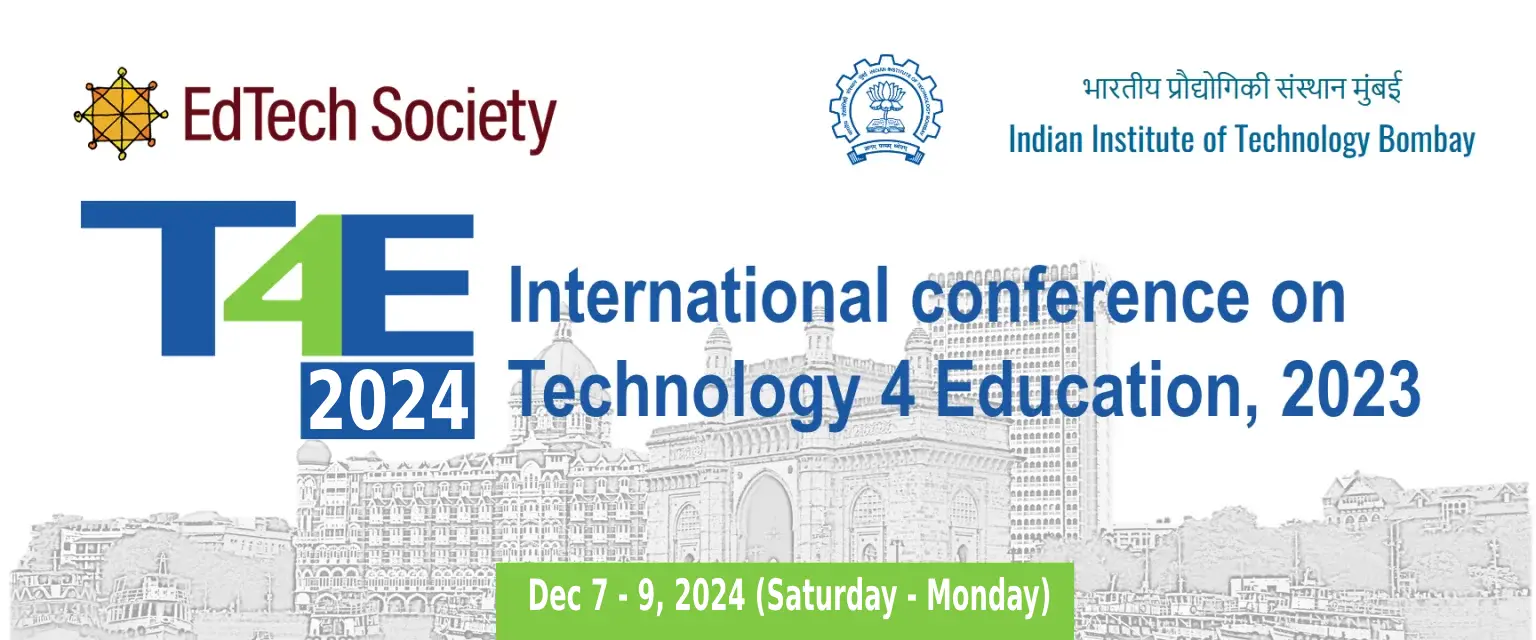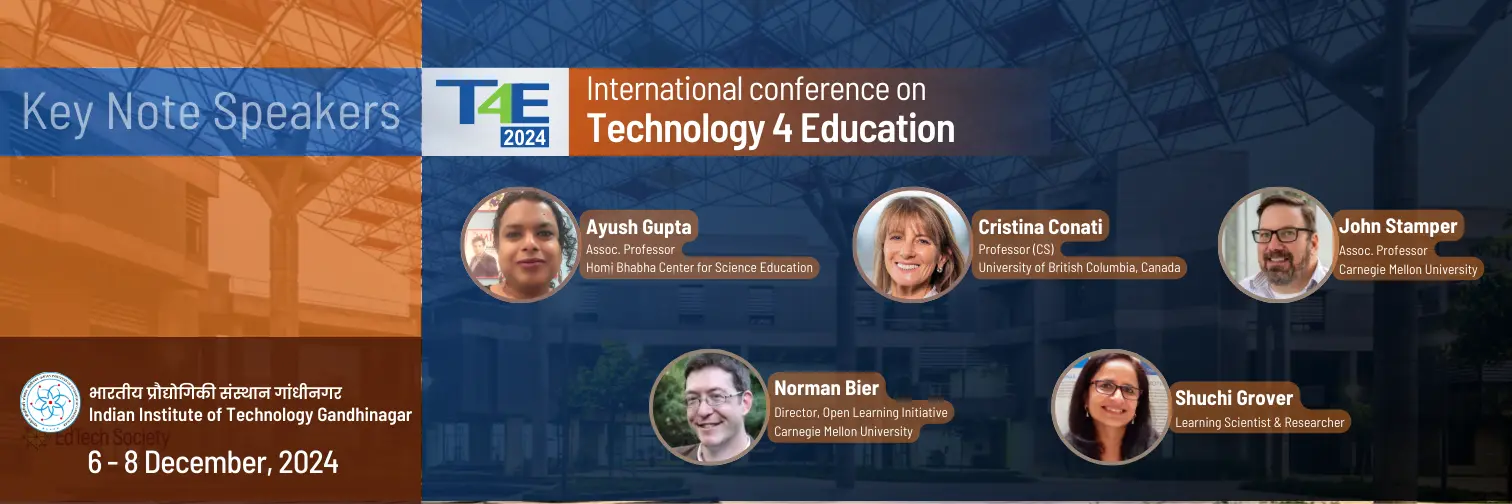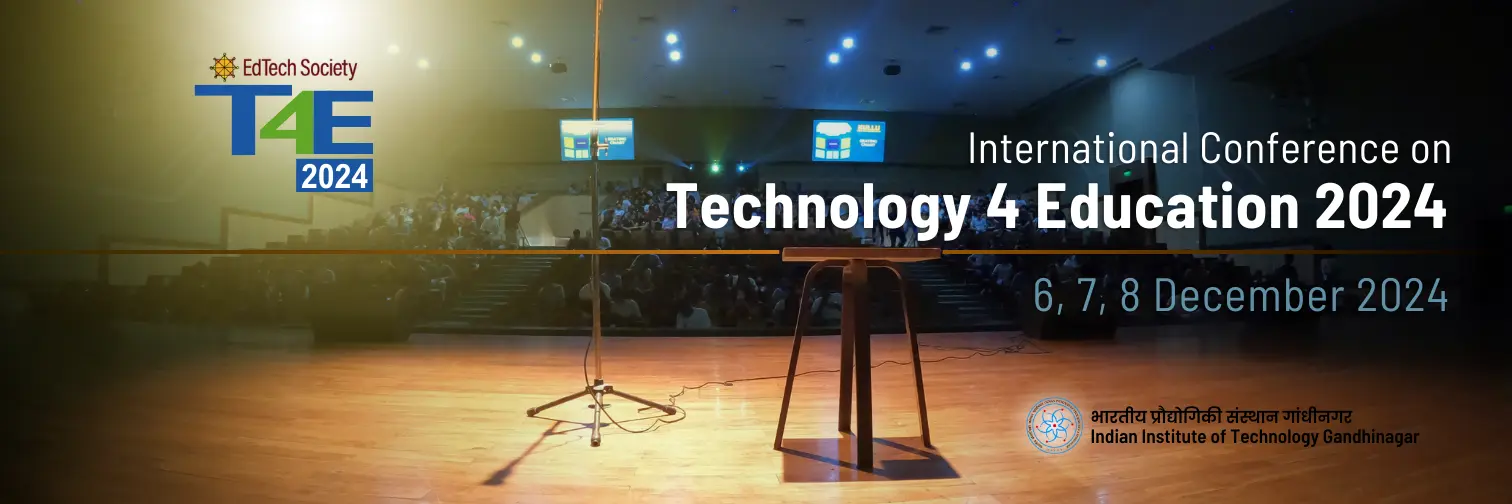
Main Menu
Technology for Education 2023 | Designed by: Theme Astra | WordPress | @Copyright All right reserved
Main Track
Areas of Focus
Papers may be submitted reporting research on any of the themes below. The context can be any of the disciplines, such as STEM, arts, engineering, computer science etc.
Theme 1: Development of technologies to support education
- Game-based learning/serious games
- Mobile and hand-held device-based learning
- Infrastructure for large-scale deployment of e-learning
- Learning analytics, AI in Education (AIED), Multi-modal Learning Analytics (MMLA), Educational Data Mining (EDM).
- Semantic web technologies in education
- Smart learning environments
- Techniques and standards for learning resources
- Virtual and augmented reality
- Technology-based learning environments
- Ethics of Educational Technology
- Ethical Use of Educational Technology
- Generative AI and Education
Theme 2: Understanding how people learn
- Development of theories of learning, instruction and role of technology
- Cognitive and metacognitive insights of learning
- Problem solving, computational thinking, reasoning, visuo-spatial thinking
- Disciplinary and interdisciplinary practices
- Affective aspects of learning
- Social and emotional learning
Theme 3: Pedagogical strategies and interventions
- Innovative use of ICT for content development and classroom use
- Adaptive and personalized approaches
- Assessment and evaluation models for technology-enhanced learning
- Impact of social networks on learning
- Pedagogies for TEL environments, online and blended learning
- Technology-supported learning of disciplinary knowledge
- Teacher professional development
Theme 4: Access, Scale and Sustainability
- LowTech - EdTech
- Diversity, Equity and Inclusion
- AI and Special Education
- Bridging the urban-rural gap in education
- e-learning in vernacular languages
- Open educational resources
- Massively open online courses
- Socioeconomic factors in technology enhanced learning
- Quality and standards in technology enhanced learning
- Scaling initiatives in education
- Research-practice partnerships for educational initiatives
- Policy issues on technology in education
Theme 5: Culture and Technology
- Role of Culture in Technology-Enhanced Learning
- Digital Storytelling and Cultural Narratives
- Cross-Cultural Collaboration in the Digital Age
- Cultural Impact of Social Media and Online Communities
Theme 6: Out-of-School Learning, Informal Learning
- Community-Based Learning
- Informal Learning Environments
- Online Platforms for Informal Learning
- Cultural and Recreational Learning
- Parental Involvement in Learning
- Life Skills and Personal Development
- Mobile Learning and Informal Education
- Socioeconomic Factors in Informal Learning
Theme 7: Education for Sustainable Development Goals
- Social Emotional Learning
- Curriculum Integration of SDGs: Incorporating the principles and goals of sustainable development into educational curricula.
- Global Citizenship Education
- Environmental Education
- Civic Education and Advocacy
Theme 8: Democracy, Technology and Education
- EdTech for Democracy
- Citizenry Education
- E-Governance in Education
- Media Literacy and Critical Thinking
- Social Media and Informal Civic Unlearning
- Critical Studies of Educational Technology












